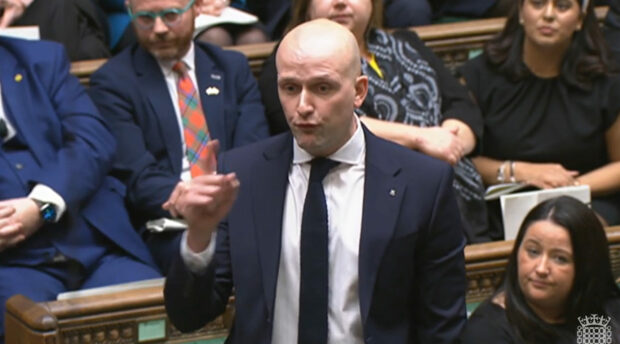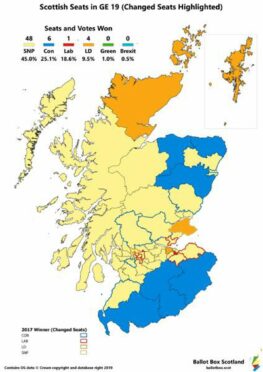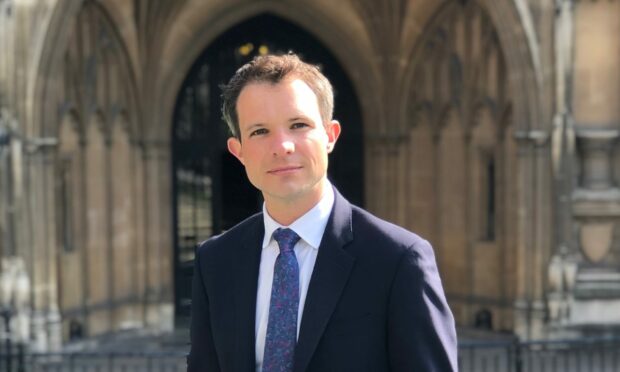The SNP and Tories are in a desperate fight to win support in closely contested north-east seats at the next election – but can either party rely on tactical voters to get them over the line?
SNP Westminster chief Stephen Flynn even wants unionists to cast their ballot against Conservatives, who appear bruised after heavy losing more than 1,000 seats in English council elections last week.
In Scotland, Conservatives laughed off Mr Flynn’s appeal – hoping to unite those same voters against the SNP.
But do previous supporters of Labour, Lib Dems, Greens and others want to play along?
Will tactical voting make any difference?
Allan Faulds, who runs independent polling data site Ballot Box Scotland, says only the SNP have a chance of winning any Tory-held seats in Scotland.
But he doubts whether Mr Flynn’s plea for a united front against the Conservatives in the north-east will have much of an impact.
He told us: “This late on, if you’re still voting for Labour and the Lib Dems in the likes of Gordon and Moray, you probably dislike the SNP more than the Conservatives.”
But, in a twist, he reckons the nationalists may still be able to reap rewards if Labour and the Lib Dems increase their vote share.
“It might be the case that if people are moving away from the Conservatives, it’s going to be to Labour and the Lib Dems,” he said.
“That might help the SNP without any need for tactical voting.
“Labour are doing very well in the polls, so they’re probably not likely to have voters leaving them at the moment, they’re going to be picking up voters.”
What happened at the last election?
At the last general election, in December 2019, the Tories lost seven of their 13 seats in Scotland but narrowly held onto three constituencies in the north-east.
Douglas Ross – who was not yet party leader – managed to retain his Moray seat by just 513 votes, one of the slimmest majorities in the country.
Meanwhile, Aberdeenshire West and Kincardine MP Andrew Bowie won in his constituency by just 843 votes.
In both seats, Labour and the Lib Dems were far behind, failing to achieve even 10% of the overall votes combined in Moray.
Even as the polls indicate some seismic shifts are possible at the next election, it’s unlikely either party will come close in the rural north-east.
What do the polls suggest?
Across the UK, Sir Keir Starmer’s Labour look primed to beat Mr Sunak’s Conservatives when voters next have their say.
Mr Flynn thinks a joint tactical push can help “finish the job”.
The Aberdeen South MP said: “The SNP is the main competitor in every Tory-held seat, so a vote for the Labour Party or the Liberal Democrats is a wasted vote.”
But more generally in Scotland, according to some surveys, Anas Sarwar’s Labour has almost caught up with the SNP and could win more.
‘Scared’
One recent poll, from Redfield & Wilton, placed the SNP just three percentage points ahead of Labour in Scotland.
A poor performance from the SNP may help the Tories in the north-east, even if they see a decline in their own vote share.
That would be a welcome relief for Conservative MPs, given polls last year suggested the party faced a potential wipeout in Scotland when Liz Truss was in power.
Aberdeenshire MP Andrew Bowie said: “In the north-east certainly, it’s not just a case of Flynn begging for support.
“He’s scared of the pro-UK vote coming together for the only party who can turf out the SNP.”
However, plans to redraw the Westminster constituency map in Scotland will add in yet another factor making the final vote count tough to predict.
Mr Ross’ Moray seat is set to be split into two, and the Tory leader will not be standing so he can focus on carrying out his duties in Holyrood.
The next Westminster election must be held no later than January 28, 2025.




Conversation